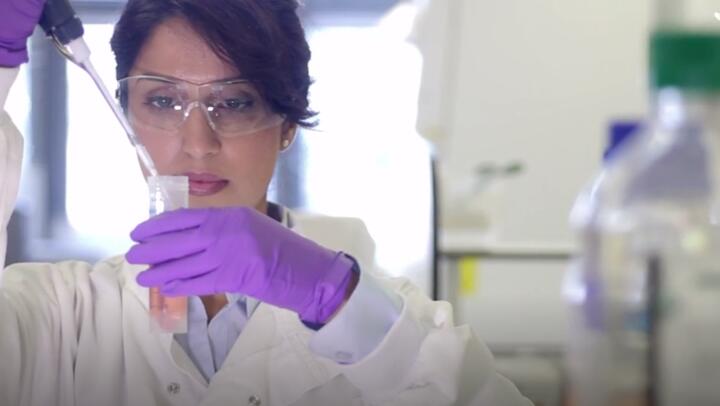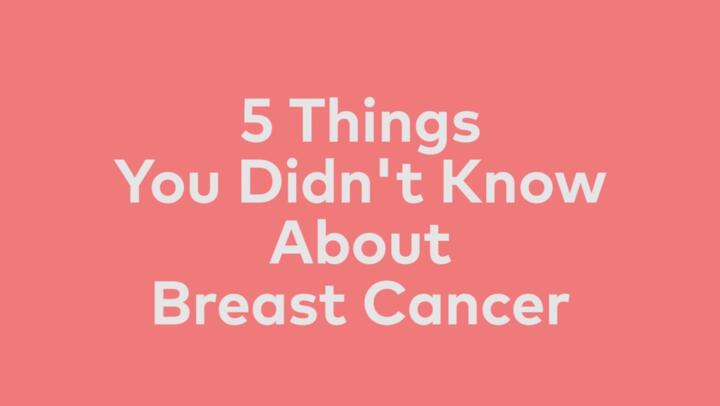
During the process of diagnosing stomach cancer, your doctor learns the type and stage. Typing and staging gives your cancer team information about the seriousness of the cancer, how best to treat it, and the likelihood of treatment success.
The most common type of stomach cancer—or gastric cancer—is adenocarcinoma. Up to 95% of people with stomach cancer will have adenocarcinoma. There are five main stomach cancer stages—starting with 0 and Roman numerals I, II, III and IV. Higher numbers mean the cancer is more advanced. Lower numbers are earlier stages and generally have a better prognosis.
Adenocarcinoma of the stomach starts in the glandular cells lining the stomach—or mucosal layer. As the cancer grows, it invades the other two stomach wall layers—the muscularis layer and the serosal layer. Other types of stomach cancer, such as carcinoid tumors, are rare.
Doctors will use biopsy results and imaging exam results to type and stage stomach cancer. The stomach cancer stage depends on:
- How deep the tumor has grown into the stomach wall layers
- Whether cancer cells are in your lymph nodes
- Whether the cancer has spread—or metastasized—to other tissues or organs
Stage 0 is the earliest stomach cancer stage. Doctors may call stage 0 cancers “carcinoma in situ.” It means the cancer remains in place. For stomach cancer, stage 0 means the cancer is only in the cells on the surface of the stomach lining. Cancer has not invaded any other stomach wall layers. It is not in lymph nodes and it has not spread. Treatment is highly successful at this stage. Unfortunately, only 10-20% of stomach cancers (in the United States) are in early stages at diagnosis. It is more common to find stomach cancer when it has already spread to adjacent tissues or a distant body site.
In stage I, stomach cancer has grown deeper into other layers of the stomach wall. However, it still only affects the stomach. It has not spread outside the stomach or to lymph nodes. The main treatment is surgery to remove part or all of the stomach. You may also need a combination of chemotherapy and radiation therapy before surgery. Sometimes, doctors recommend these treatments after surgery as well. Treatment is usually successful at this early stage.
Stage II stomach cancers have two sub-stages: A and B. The sub-stage depends on how far into the stomach wall the cancer is and whether it remains in the stomach wall. Some tumors have grown all the way to the outermost layer of the stomach. Some remain in the lining or stomach wall, but cancer cells are in the lymph nodes by the stomach. Others have grown into connective tissue around the stomach or into the cells lining the inside of the abdominal cavity. There may or may not be cancer cells in nearby lymph nodes.
Treatment is similar to stage I. When the cancer is not anywhere outside the stomach, treatment can still be successful. The likelihood of success decreases if cancer is outside the stomach in lymph nodes or other tissues.
Stage III means stomach cancer has grown outside the stomach. There are three sub-stages: A, B and C. The sub-stage depends on how many lymph nodes have cancer and whether it has spread to organs near the stomach, such as the diaphragm, liver, spleen, pancreas, colon, small intestine, and kidney. However, stage III stomach cancers have not spread to distant lymph nodes or body sites.
The main treatment is still surgery with a combination of chemotherapy and radiation therapy. For people who can’t have surgery, doctors will use chemotherapy and radiation therapy as main treatments. Treatment is less likely to be successful at this stage. The five-year survival rate for stomach cancer that has spread outside the stomach is 31%. This means 31% of people with this stage of stomach cancer are still alive five years after diagnosis. This number can change with the sub-stage. In general, IIIA survival rate is higher than this, while IIIC is lower.
Stage IV stomach cancers have spread beyond nearby organs and tissues to distant body sites. Common sites include the lungs, brain or bones. Successful treatment is not likely at this stage. The five-year survival drops to 5%. However, doctors may still recommend palliative treatment to control symptoms and help patients live more comfortably. Surgery may be useful to remove blockages or control bleeding. Other treatment options may include chemotherapy, radiation therapy, or targeted therapy.
Stomach cancer is usually discovered at a higher stage at the time of diagnosis. Talk with your doctor about your treatment options and the goal of your treatment. Consider asking your doctor about a clinical trial. Clinical trials can give you access to cutting-edge treatments that are otherwise unavailable. Your participation can also help doctors understand how to better treat stomach cancer in the future.



















